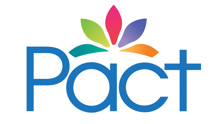10/06/2025
News
Young people in custody need more support to build healthy relationships
Building positive relationships is at the heart of what we do. Strong relationships between prisoners, their children and families, significant others, and prison staff, are a core part of delivering safer prisons, reducing reoffending and helping people to make a fresh start.
So it was disappointing to read this week the Chief Inspector of Prison’s conclusion that the Youth Custody Service (YCS) has failed to create environments where children can form ‘positive, appropriate’ relationships. His report - 'Building Trust' - states that that a failure to foster positive relationships affects the YCS’ ability to run safe establishments in which children can engage with education, health care and offending behaviour programmes.
There are clearly caveats here. We must recognise the huge challenges facing governors and their teams – our criminal justice system is in crisis. Moreover, the Chief Inspector’s report was limited to three establishments. However, the report is an important one and raises clear questions over culture and priorities.
The Chief Inspector makes clear the crucial role that family and other important relationships play in the process, pointing out that they are fundamental to the safety, success and happiness of these children.
He writes that: “Awareness of a child’s interests, educational achievement and family life was … fundamental to children’s feelings of care. However, most children we spoke to did not think staff knew much about them on a personal level.”
As anyone who has worked with children and young people in custody knows, many have been through the Care system, and many have experienced abuse and neglect, and carry with them trauma and a sense of abandonment. Many have done terrible, shocking things. There can be high levels of violence and disruption. All of which means that working on good relationships is particularly vital.
Supporting such children and young people to understand and experience healthy relationships is about so much more than organising social visits (as important as these are). It is my view that relationship education, and modelling good relationships, should be the core of what happens in these places.
When children come into the system, is anyone asking them who they have in their lives? How are those relationships being repaired and maintained? How are we supporting these young people to know what a healthy relationship looks like? Pact’s Routes2Change model sets out a ‘family first’ approach to rehabilitation that could readily be applied in YOIs to address these issues.
The fact is that nowhere near enough is being done to identify and support healthy relationships with family, or other people in these children's lives. We would urge the YCS to look again at the way that this crucial support is delivered.
Andy Keen-Downs, CEO Pact

